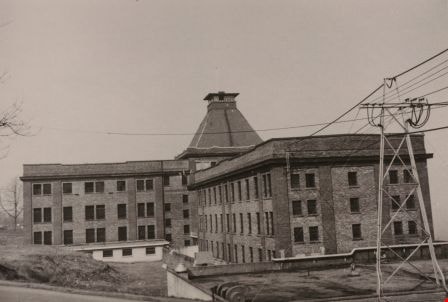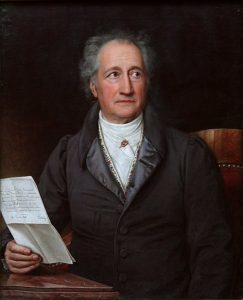
I have come to have enormous regard for the power of “first steps,” especially decisions and actions that propel us into unfamiliar, challenging territory. In novels the protagonist is often faced at the outset with a decision that will require courage, possibly combat with unsavoury characters. Linda and I had taken an important first step when we purchased a home and five acres just prior to getting married. This ensured that we would always have a home, but after that there had been a dearth of inspiring decisions or actions.
This began to change when we left our jobs and lived in a tent in Cariboo wilderness for three months. For us this was another venture into the unknown. Deciding I should attend university was also a first step. To this time we had focused on paying off the mortgage, certainly not on contemplating exciting adventures.

At SFU my thinking began to expand. A quote by Johann Wolfgang von Goethe nudged me to attempt more.
He said, “Whatever you can do or dream, you can begin it. Boldness has genius, power and magic in it.”
I received further inspiration from the words of William Hutchison Murray. He wrote, “the moment one definitely commits oneself, then Providence moves too. All sorts of things occur to help one that would otherwise never have occurred. A whole stream of events issues from the decision raising in one’s favor all manner of unforeseen incidents and meetings and material assistance which no man could have dreamt would have come his way.”
For me, here was magic and although I didn’t fully grasp its power or significance, I wanted to explore it. In my first year at SFU, I learned that a recently minted organization was looking for volunteers to visit prisoners in Oakalla. Intrigued, I attended an introductory meeting in the prison. Dick Simmons, an American, had already launched M2/W2 (Man to Man, Woman to Woman), in a Seattle prison. He was at this meeting and explained that a citizen from the community would be matched with an inmate on a one to one basis. The “sponsor” would visit every two weeks with the goal of developing a relationship of trust.
Most of the prisoners accepted into the program were not not receiving visits and did not have support in the community. The sponsor would become the inmate’s connection to the world outside prison and would help with finding work and making the difficult adjustment to life in the community.
I had always regarded Oakalla as austere and forbidding. Our tour of Westgate B didn’t change my thinking. When that large solid metal door clanged shut behind us I felt we had entered an alien world. Disconsolate grey clad men were wandering about on the tier, with no discernible purpose. Some were in their cell, surrounded by steel bars. I wasn’t at all confident I had the experience or wisdom to find a common ground with these listless men existing like animals in this barren environment. Even so, I signed on.
Sponsoring at Oakalla would be another first step. I found that these men suffered from a deficit of interests and knowledge. Many had dropped out of school before graduating. Often after numerous stints in prison, relationships with family and friends had disintegrated. They complained about the food, being hassled by guards, the regulations, the unfairness of their confinement. They had learned to be distrustful, even of each other. Interactions with the “bulls”, as the inmates frequently referred to them, were not uplifting. The guards viewed their charges as devious and not to be believed or trusted.
I didn’t know it yet but there would be other prisons and other prisoners in my future. Oakalla provided me with some understanding of what I could expect from prisoners and from those hired to ensure they did not escape. By taking the first step of sponsoring men at Oakalla I gained experience and understandings that would give me a measure of credibility with those doing time and also with those in positions of authority. I didn’t realize yet that taking this first step would open doors to other prisons and to other opportunities to help men catch a more positive vision of who they could become.
